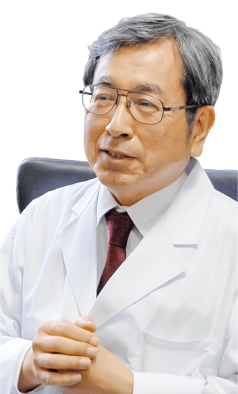Greetings from the President

President
Hidekazu
TOMIMOTO
冨本 秀和
Do you know that central nervous system diseases are a leading cause of long-term care? According to the White Paper on the Elderly 2019, stroke accounts for 24.5% of the cause of long-term care in men, and dementia accounts for 19.9% in women, both of which represent major causes of nursing care. In Japan, the declining birth rate and aging population will progress toward 2040, and the elderly population will reach its peak at that time. Until then, we need to build a society in which people can actively participate in social activities.
In light of this situation, in 2019, The Japan Brain Dock Society clarified its mission by adding the subtitle " Academia for Early Prevention of Stroke and Dementia " to its name. The Society was established in 1992 by Dr. Kazuo Hashi, an Advisor of the Society, and Dr. Toshio Nakagawa, former President of the Japan Medical Association. With the widespread use of brain MRI, unruptured aneurysms are often detected, and early detection and intervention became a matter of debate. Subsequently, the natural history of unruptured aneurysms was uncovered based on findings from brain checkup data. Currently, the annual incidence of subarachnoid aneurysm rupture is decreasing as a result of controlling high blood pressure and smoking as risk factors for rupture, as well as radical surgery for unruptured aneurysms. Since then, an increasing number of people have been undergoing brain checkups not only for the early detection of aneurysms and stroke prevention, but also for concerns about forgetfulness and dementia. In June 2023, Hidekazu Tomimoto was appointed as the 7th chairman of the board, succeeding Tomoyasu Suzuki. During his two terms of four years, various reforms were carried out under his strong leadership, and several important committees, such as the Accreditation and Education System Committee, Academic Committee, and COI Committee, were established; thus, the system development was completed as an academic organization. The Japan Brain Dock Society not only helps to improve the health of brain checkup users directly but also takes into account the social responsibility of the extension of healthy life expectancy in an aging society with a declining birthrate.
The brain check-up certified by this society includes a wide range of examinations, including those of the cardiovascular system, which can cause brain damage centered on brain MRI examinations. Consequently, it is possible to detect various lesions that are considered to indicate a high risk for stroke and dementia. In particular, it is a powerful tool for the early detection of asymptomatic cerebrovascular lesions such as vessel stenosis, cerebral infarction, and hemorrhage. In contrast, in Alzheimer's disease, which accounts for 60% of dementia cases, the detection of hippocampal atrophy, which plays an important role in memory, is plausible but difficult in mild cognitive impairment (MCI). In other words, the strategy of diagnosing brain diseases before they become apparent and performing preventive interventions is an effective way to treat cerebrovascular diseases; however, it is difficult to detect Alzheimer's disease in the prodromal stages. In recent years, the progress and spread of AI-based neuroimaging support and digital examination tools for cognitive functions have been remarkable. Therefore, in the near future, it is expected that MRI will be able to detect early changes that lead to Alzheimer's disease and dementia with Lewy bodies.
The Brain Dock is a brain health checkup system unique to Japan, and one of the important missions of this society is to support the healthy development of brain checkups. For this reason, the Society has accredited approximately 300 high-quality Brain Docks as society-accredited facilities and made them available on its website. At these facilities, the imaging conditions and quality of diagnostic imaging are regularly checked so that visitors can feel at ease. In addition, we recently launched an education system to certify brain dock doctors and instructors, promote the correct understanding of examination results, and provide adequate advice for the prevention of stroke and dementia. Academically, with the aim of preventing stroke and dementia, several mega-docks nationwide have been certified as database cooperation facilities, and a database management business has been launched with a goal of 10,000 cases per year. We plan to disseminate academic information obtained from these databases both domestically and internationally. In addition, the Academic Committee released the 5th edition of the Brain Dock Guidelines in 2019 but is preparing for a revision using the GRADE system.
In addition to improving and standardizing the quality of brain health checkups, the society will strive to improve member benefits through the introduction of membership facilities and educational activities on our websites. We would like to sincerely ask for your active participation, support, and encouragement for the Japan Brain Dock Society.